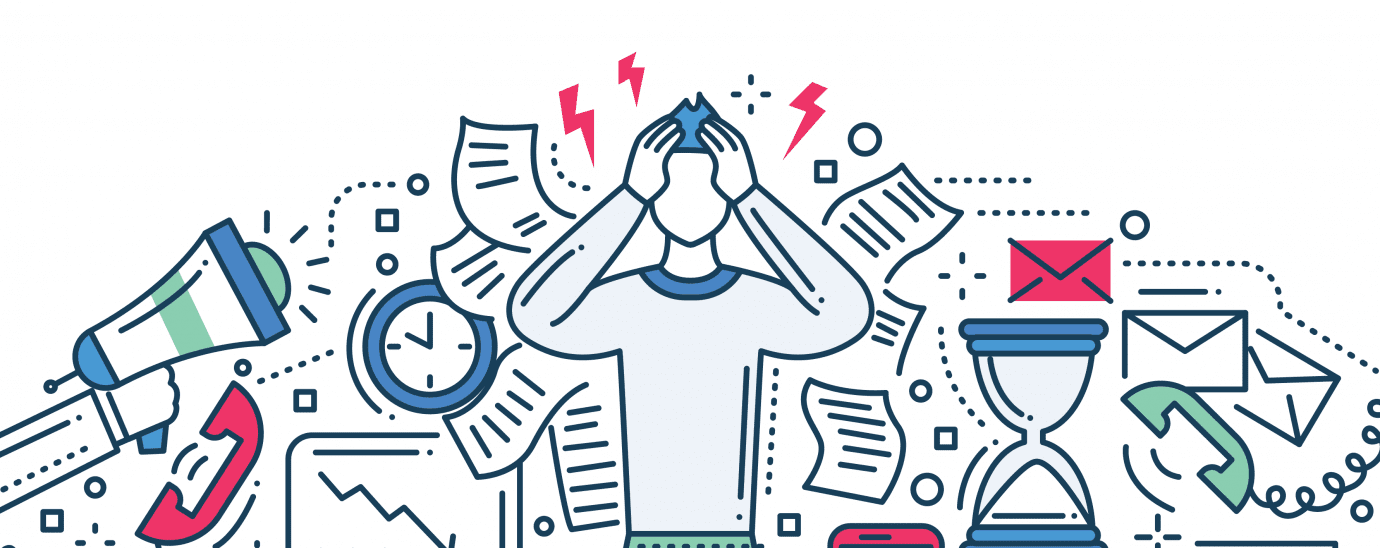3 Ways tech can alleviate workplace stress

This week is International Stress Awareness Week. To mark the event and to raise awareness about stress prevention, Top Business Tech looks at three ways you can alleviate stress in the workplace using technology
We have all experienced stress to some degree or another – pressure is a normal part of life and work. Stress in the workplace can cause issues which, if gone unchallenged, could impact life outside of work.
Technology now plays an important role in everybody’s lives. It is ever-present: perennially in our pockets, on our wrists or at our desks.
Often we use tech for convenience, networking or entertainment, but rarely do we tap into its unbridled potential to better our lives.
According to research conducted by the Dolan Contractor Group, 89% of UK employees have suffered from workplace stress. One in every eight of those have taken time off because of it.
One of the most common causes of stress in the workplace is client or deadline pressure. 32% of study respondents said that their mental wellbeing has been affected by this, an issue many can sympathise with.
Speaking to HR Technologist, Lauren Monks, Group Operations Director at Dolan Contractor Group, said that their study “outlines the key areas that cause stress and so gives us and employers insight to help reduce stress in the workplace…Stress is prevalent in all areas of work and across all industries regardless of the way you work.”
So how can tech help combat workplace stress?

Apps that improve wellbeing
There are a number of applications freely available in the marketplace which could have a positive impact on your wellbeing.
Among them are meditation apps, which have become increasingly popular over the last few years. Many of these apps assist individuals, but some have set their sights on entire organisations, hoping to change the way stress and wellbeing are viewed in the workplace as a whole.
READ MORE: 3 Ways that AI will change healthcare forever
BioBase is one such app: a digital workplace wellbeing programme focused on mental health.
By giving employees access to real-time health data and digital, on-demand therapeutics, BioBase allows individuals within an organisation to track their biometric and psychometric data, offering insights into mental wellbeing.
BioBase’s platform uses artificial intelligence and machine learning to understand how a user’s behaviour, interactions and environment all impact on their wellbeing. The algorithms recognise distinct patterns, offering advice to help users cope with stress, anxiety and depression.
What’s more, digital coaching courses are available through the app, incorporating techniques like Cognitive Behavioural Therapy (CBT).

Wearable tech to alleviate stress
Wearable tech has become synonymous with physical wellbeing. From Fitbit to the Apple Watch, health has been a cornerstone of wearable tech’s USP all throughout its rise to popularity. Almost 20% of people in the UK now own a wearable device of some kind, and the number is growing.
Numerous sensors built-in to wearables can track and monitor many aspects of our health. From heart rate to quality of sleep, these “always-on” trackers can collect valuable data, which we can then use to better our wellbeing.
MyFeel, which claims to be the world’s first emotion sensor and mental health advisor. The wristwatch-style wearable, together with an app, an online counsellor and an education program, covers all aspects in a user’s journey to a better understanding of their health and wellbeing.
The heart rate monitor function found in most wearables can also help combat anxiety. In the case of MyFeel, intelligent data interpretation can send alerts to remind the user to take immediate steps to reduce their heart rate.
Sleep tracking is also often found embedded in health wearables. Without a good night’s sleep, we may find ourselves more susceptible to poor mental health. Tracking your sleep is a good way to figure out what area to improve upon, to ensure better mental health.

Online courses for better mental health
Numerous studies have conclusively linked exercise with improved mental health. However, this doesn’t necessarily mean you have to visit a gym if that’s not your thing.
Mind, one of the UK’s foremost mental health charities, say that many people find physical activity helps them maintain positive mental health.
“This doesn’t have to mean running marathons or training every day at the gym,” they say, “there are lots of different things you can do to be a bit more active.”
Daily Burn, an online exercise course, enables anyone, anywhere, to access personalised workout plans. Whether you’re at home, or on your lunch break, Daily Burn can be accessed through Apple TV, Android, iOS and desktop devices, allowing you steal a few minutes of exercise when it suits you.
For more information, support and resources, visit Mind or Time to Change.
